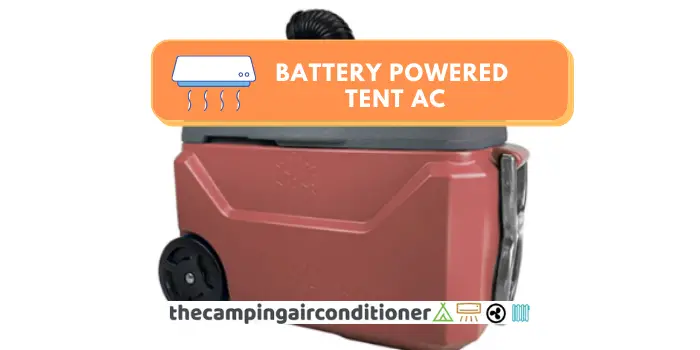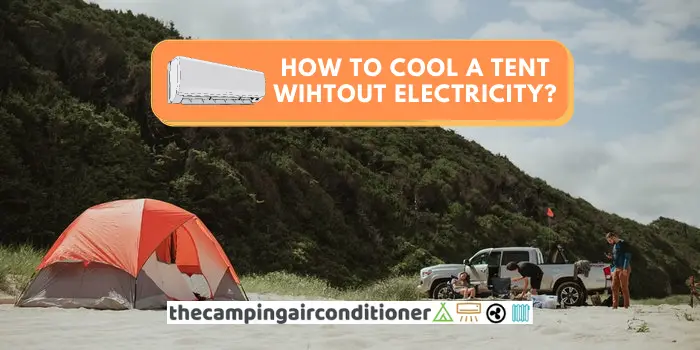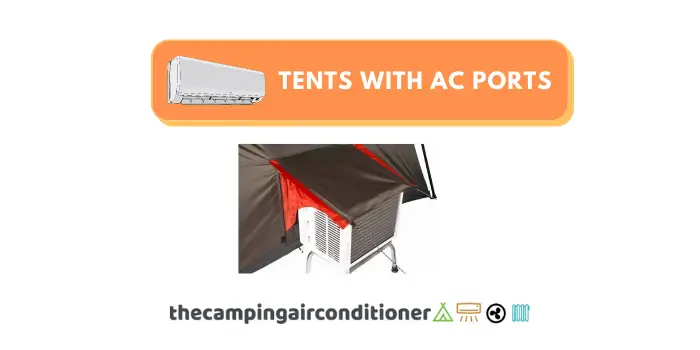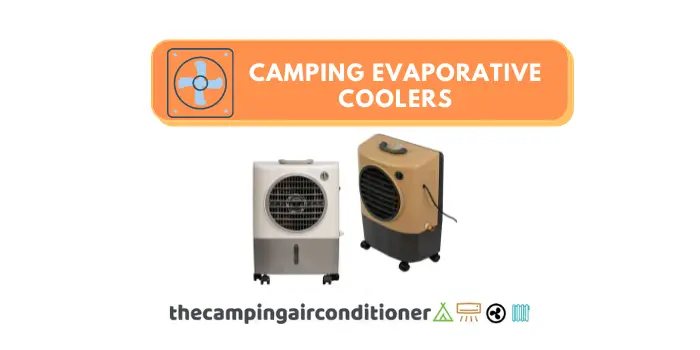Scorching days are a challenge when we are camping with our family. Among many options available to air condition a tent, we have portable ac units. However, will a portable AC cool a tent?
A short answer is yes; they will! However, you should pay attention to several issues before buying your mobile devices, such as the cooling output required, tent insulation, power input requirements, noise levels, water leaks and position in the tent.
Let’s go through each of them below.
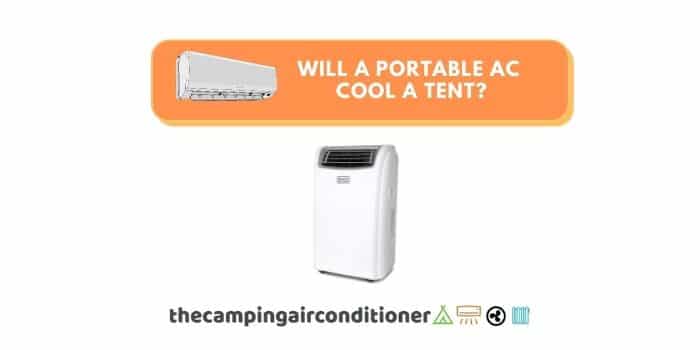
Tips to ensure that your portable ac will cool your tent
Tip 1 - Pick a portable AC with the adequate cooling capacity
It is essential to ensure that you choose the equipment that suits your needs. We detailed a guide on what size AC you need for a tent, but as a rule of thumb, you should consider the following (read more on what size AC you need for your tent):
- Insulated tents will need at least 4 BTU per cubic foot.
- Tents without proper insulation will require at least 5 BTU per cubic foot (25% extra power required)
- If your tent is exposed to the sunlight for long hours and has no insulation, we recommend at least 6 BTU per cubic foot (50% extra power required)
Therefore, measure your tent and ensure that you neither buy oversized nor undersized equipment. If your tent is small (up to 3 or 4 campers), you might choose a mini portable ac or a battery-powered unit.
Tip 2 - Insulate your tent
Good insulation will improve AC performance and ensure a cooler environment inside your tent. You can do it with simple measures, which are detailed in this article.
Tip 3 - Power input requirements
Even though this looks obvious, some campers forget to undertake a simple campsite investigation.
First of all, you should check whether your campground has the electrical infrastructure and if you can pitch your tent close by an electric hook-up. Secondly, check whether the voltage and power output are adequate for your equipment needs.
If you don’t have a proper electric installation, it might be a good idea to consider a battery-powered version.
Tip 4 - Noise Levels
One of the drawbacks of portable ACs is related to their noise levels. In contrast to window ACs and split ACs, which have their cooling units installed outside the room, portable ACs have all the engines and mechanisms in one container.
The noise levels can be pretty annoying and affect your sleeping patterns. Therefore, give preference to units with noise levels below 60dB (preferably below 55dB, if possible).
Tip 5 - Water Leaks
That is another significant drawback of portable ACs. Most of the equipment will be able to pull moisture from the air and dehumidify your tent. However, moisture will condense and turn into water, which needs to be drained.
A good idea is to connect the plastic hoses and channel the liquids out of your shelter. Some models, such as the Whynter Elite ARC-122DHP 12,000 BTU, come with extra sealing and a drainage pan that mitigate this issue.
Tip 6 - Pay attention to where you put your portable AC inside your tent
If possible, avoid placing the cooling device close to openings and tent doors – it will be easier for the cool air to escape from your tent. The equipment should be placed where the cold air can flow freely.
Also, ensure that the device is installed on a flat surface and the power input plugs are close by. Remember that most devices come with exhaustion hoses and ensure that it is long enough to exhaust the warm air outside your tent.
Three portable ACs that will cool your tent - Our recommendations
After thorough market research that took into consideration all the tips above and value for money, we suggest the models that we reviewed in this article.
FAQ
What is the best tent air conditioner - a portable AC or a window AC unit?
It depends. A window-mounted unit will provide you with better reliability, no problems with water drain, and potentially be less noisy. On the other hand, a portable AC comes with improved portability and easy installation.
Overall, our recommendation is – if your camping adventures are not long (less than 4 days), consider a portable AC. For long trips (>7 days), a window AC unit might suit better.
Whatever option you decide, make sure you comply with all installation safety requirements.
How do I maintain my portable AC?
We recommend cleaning your AC unit after every camping trip or maximum every three months. When maintaining the device, do the following:
- Clean the drain
- Clean and/or replace AC filters
- Check the coils
- Remove dust
You can read a detailed guide on maintaining your tent ac in this article.
What is the ideal temperature that my portable AC should provide?
According to the sleep foundation, the temperature range from 60 to 67 degrees Fahrenheit is considered optimum, with temperatures around 65 degrees Fahrenheit providing you with maximum comfort.
Conclusion
A portable AC is an excellent option to air condition your tent. They have many advantages compared to a window AC unit, such as portability and ease of installation.
However, you should pay attention to the six points detailed above before picking a portable AC unit for your tent:
- Pick the adequate portable AC (cooling output)
- Insulate your tent so that AC performance is maximised
- Check power input requirements and campsite electric infrastructure.
- Watch noise levels (prefer units with less than 55dB)
- Remember that the device will require water drainage.
- Check the best position to put your mobile device in.

